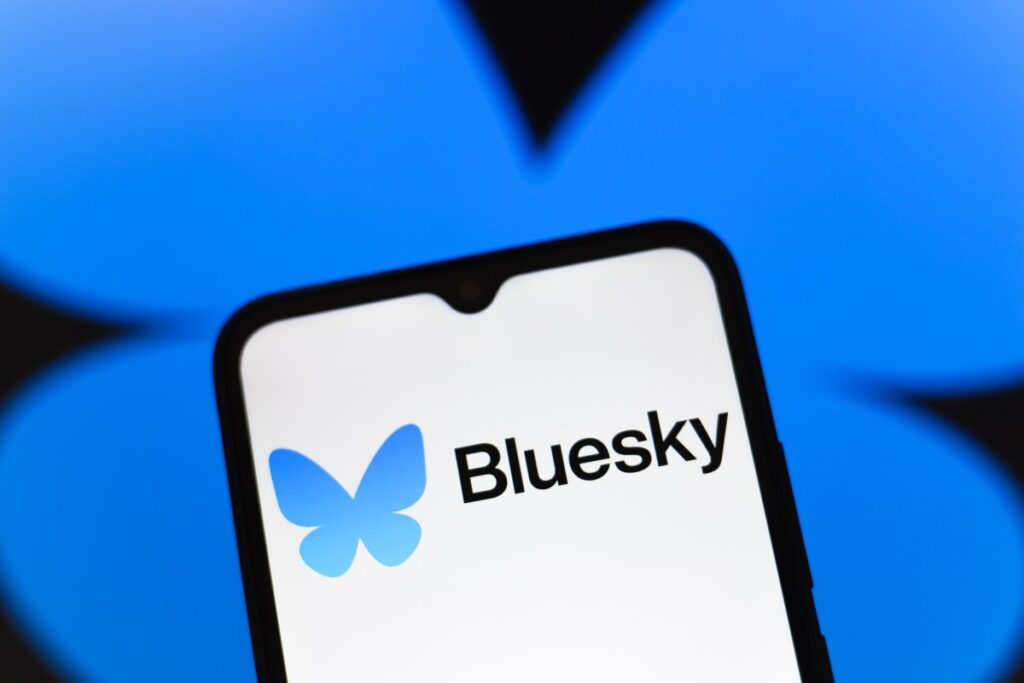Bluesky rolls out massive revamp to policies and Community Guidelines
Two years after launching, social network Bluesky is revising its Community Guidelines and other policies, and asking for feedback from its users on some of the changes. The startup, a competitor to X, Threads, and open networks like Mastodon, says its new policies are meant to offer improved clarity and more detail around its user safety procedures and the appeals process.
Many of the changes are being driven by new global regulations, including the U.K.’s Online Safety Act (OSA), the EU’s Digital Services Act (DSA), and the U.S.’s TAKE IT DOWN Act.
Some of the changes represent an effort by Bluesky to purposefully shape its community and the behavior of its users, nudging them to be nicer and more respectful of others. This comes after a series of complaints and media articles suggesting the community has a tendency toward self-seriousness, bad-news sharing, and a lack of humor and diversity of thought.
For regulatory compliance, Bluesky’s Terms of Service has been updated to comply with online safety laws and regulations and to require age assurance where required. For instance, in July, the U.K.’s Online Safety Act began requiring that platforms with adult content implement age verification, which means Bluesky users in the country have to either scan their face, upload their ID, or enter a payment card to use the site.
The process for complaints and appeals is also now more detailed.
One notable update references an “informal dispute resolution process,” where Bluesky agrees to talk on the phone with a user about their dispute before any formal dispute process takes place. “We think most disputes can be resolved informally,” Bluesky notes.
That’s quite different from what’s taking place at larger social networks, like Facebook and Instagram, where users are being banned without any understanding of what they did wrong and no way to get in touch with the company to complain.
Techcrunch event
San Francisco
|
October 27-29, 2025
Bluesky also says it will allow users to resolve certain claims of harm in court, instead of through arbitration. This is also somewhat unusual for tech companies that often prefer to mediate disputes outside the courts.
However, Bluesky users may be more interested in the proposed changes to the Community Guidelines, which they’re invited to offer feedback about. (The changes go into effect October 15, 2025, after the feedback period completes.)
These revised guidelines are organized around four principles: Safety First, Respect Others, Be Authentic, and Follow the Rules. These general principles are meant to guide Bluesky’s moderation decisions around whether content should be labeled or removed, if the company can suspend or ban your account, or, in some cases, report you to law enforcement.
Bluesky’s rules include many common-sense policies around not promoting violence or harm (including self-harm and animal abuse); not posting content that’s illegal or that sexualizes minors (including in role-play); not allowing harmful actions like doxxing and other nonconsensual personal data-sharing; and not posting spam or malicious content, among other things.
It carves out provisions for journalism, parody, and satire. For instance, journalists engaged in “factual reporting” can post about criminal acts and violence, mental health, online safety, and other topics, like warnings of online viral challenges that may be harmful.
Where Bluesky may get into trouble is with the nuances of what’s considered a “threat,” “harm,” or “abuse.”
The policy states that users should “respect others” by not posting, promoting, or encouraging “hate, harassment, or bullying.” As an example, the policy bans exploitive deepfakes and content that “incites discrimination or hatred,” meaning posts that attack individuals or groups based on “race, ethnicity, religion, gender identity, sexual orientation, disability, or other protected traits.”
This is an area where Bluesky has faltered before, when, in earlier days, its moderation decisions strained its relationship with the Black community, and in another case, when its failure to moderate angered the trans community.
More recently, the company has been facing backlash that it’s become too left-leaning, where users were quick to criticize, post hateful replies, and where the community generally lacked humor.
The original idea behind Bluesky was to provide users with tools to create the community they want, including not only blocking and reporting tools, but also things like subscribable block lists or opt-in moderation services that align with your values. However, Bluesky users have still shown a preference for the app itself to handle much of the moderation, railing against its trust and safety department when it made decisions they disagreed with.
In addition, Bluesky’s Privacy Policy and Copyright Policy were also rewritten to comply with global laws around user rights, data transfer, retention and deletion, takedown procedures, transparency reporting, and more. These both go into effect on September 15, 2025, and there is no feedback period for either.

